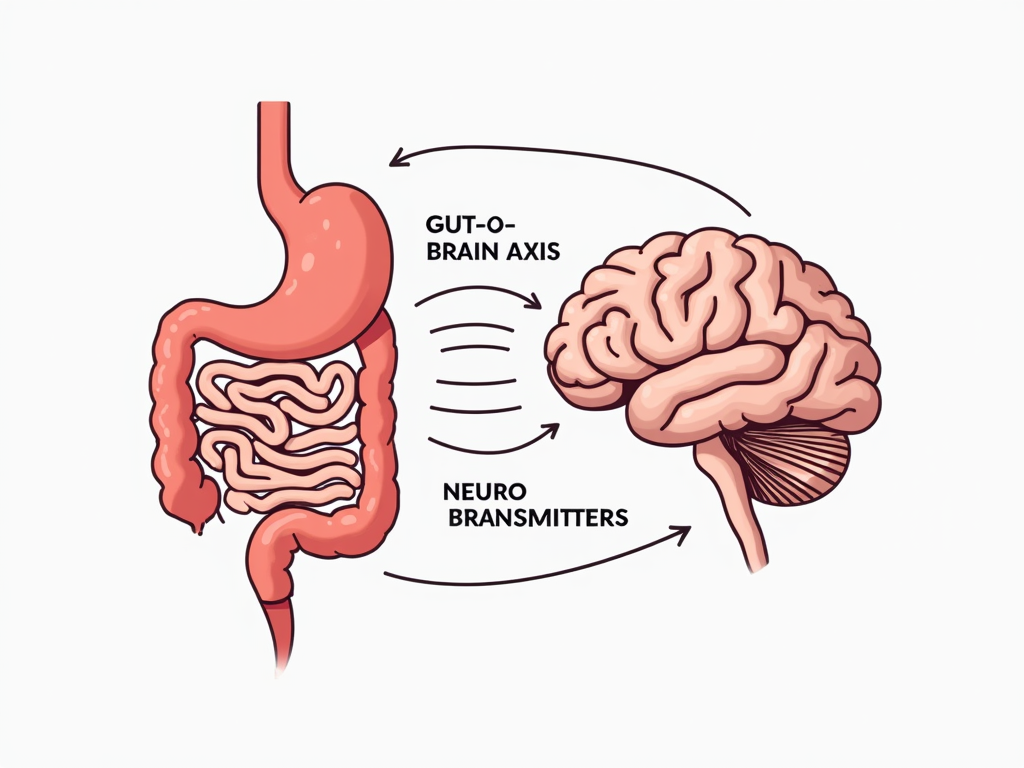Have you ever noticed how your mood changes after eating certain foods? Or how a healthy meal can make you feel more energized and positive? The connection between diet and mental well-being is profound, and understanding this relationship can empower you to make better food choices for your mental health. In this article, we'll delve into how diet affects mental well-being, with a particular focus on the psychological effects of chronic vomiting and Chronic FPIES (Food Protein-Induced Enterocolitis Syndrome). We'll explore the science behind this connection, share personal insights, and provide practical tips for managing your diet to support your mental health.

The food we eat plays a crucial role in our mental well-being. Nutrients from our diet are essential for brain function, and deficiencies in certain vitamins and minerals can lead to mental health issues. For example, omega-3 fatty acids, found in fish and flaxseeds, are known to support brain health and reduce symptoms of depression. Similarly, B vitamins, particularly B12 and folate, are vital for mood regulation and cognitive function.
Moreover, the gut-brain axis, a complex communication network between the gut and the brain, highlights how our digestive health can influence our mental state. A healthy gut microbiome, fostered by a diet rich in fiber and probiotics, can positively affect mood and cognitive function. Conversely, an imbalanced gut microbiome, often resulting from a poor diet, can contribute to anxiety, depression, and other mental health disorders.
Inflammation is another key factor linking diet and mental health. Chronic inflammation, often triggered by a diet high in processed foods, sugar, and unhealthy fats, can negatively impact brain function and lead to mood disorders. On the other hand, an anti-inflammatory diet, rich in fruits, vegetables, whole grains, and healthy fats, can help reduce inflammation and support mental well-being.

Chronic vomiting, a condition characterized by recurrent episodes of vomiting, can have significant psychological effects. The constant fear of vomiting, the physical discomfort, and the disruption to daily life can lead to anxiety, depression, and a reduced quality of life. This is particularly true for individuals with Chronic FPIES, a food allergy condition that causes severe vomiting, diarrhea, and lethargy in response to certain foods.
Living with Chronic FPIES can be mentally exhausting. The need to strictly avoid trigger foods, the unpredictability of reactions, and the social isolation that can result from dietary restrictions can all contribute to mental health challenges. Moreover, the physical symptoms of Chronic FPIES, such as chronic vomiting, can exacerbate these psychological effects, creating a vicious cycle that is difficult to break.

As someone who has experienced the challenges of managing a chronic condition like FPIES, I understand the mental toll it can take. The constant vigilance required to avoid trigger foods, the fear of accidental exposure, and the impact on social interactions can be overwhelming. I remember feeling isolated and anxious, especially during social gatherings where food was involved. It was a struggle to explain my condition to others and to find ways to participate without feeling left out.
However, through trial and error, I discovered strategies that helped me manage my diet and improve my mental well-being. For instance, I started planning my meals carefully, ensuring I had safe options available at all times. I also sought support from online communities and local support groups, where I could connect with others facing similar challenges. These connections provided a sense of belonging and understanding that was crucial for my mental health.

If you're struggling with the mental health effects of chronic vomiting or Chronic FPIES, here are some strategies that may help:
-
Consult a Dietitian: A registered dietitian can help you create a balanced diet plan that avoids trigger foods while ensuring you get the necessary nutrients for mental health.
-
Practice Mindful Eating: Pay attention to how different foods make you feel, both physically and mentally. This can help you identify patterns and make informed choices.
-
Stay Hydrated: Dehydration can worsen mental health symptoms. Ensure you're drinking enough water, especially if you're experiencing vomiting.
-
Incorporate Gut-Friendly Foods: Probiotics, prebiotics, and fiber-rich foods can support a healthy gut microbiome, which in turn can improve mental well-being.
-
Seek Professional Help: If you're feeling overwhelmed, consider talking to a therapist or counselor who can provide strategies for managing anxiety and depression.
-
Build a Support Network: Connect with others who understand your challenges. Online forums, support groups, and social media can be great resources.
-
Practice Self-Care: Engage in activities that bring you joy and relaxation, such as reading, exercising, or spending time in nature.
Remember, managing your diet for mental well-being is a journey, and it's okay to seek help along the way.

In conclusion, the relationship between diet and mental well-being is undeniable. By understanding how our food choices impact our mental health, we can make informed decisions that support our overall well-being. For those dealing with chronic vomiting or Chronic FPIES, the challenges can be particularly daunting, but with the right strategies and support, it's possible to manage these conditions and improve mental health. Remember, you are not alone, and there are resources and communities available to help you on your journey.
Discuss Here